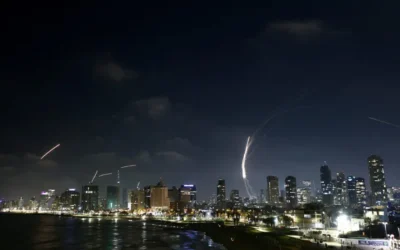On Tuesday’s edition (5/30) of NPR’s morning news podcast Up First, NPR reported on the death of former Panamanian leader Manuel Noriega. Here’s how hosts Steve Inskeep and David Greene covered the story:
Inskeep: And one final note, Manuel Noriega, the former leader of Panama, has died.
Greene: Isn’t that a name that has just remained on our consciousness for so many years? He was the, a strongman in the 1980s–first an ally of the United States–but then really an obstacle. He was accused of interfering with an election that, uh, didn’t go his way.
Inskeep: And the United States military under President George H.W. Bush removed him from power in 1989, blasting rock music at an annoying volume, at the building where Manuel Noriega took shelter. He spent years afterward in and out of prison.
Now, everything in the NPR story is true as I understand it. But it comes with one tiny little omission:
There was an invasion.
To be more specific, President George H.W. Bush invaded Panama unilaterally, without seeking any approval from Congress as required by the Constitution, without any legal authority from the United Nations, and in the face of outright opposition from the Organization of American States. This meant the war was plainly illegal both under US law and under international law. It was a war crime.
And like any war, it had casualties. A number of US and Panamanian troops died in the conflict, along with a disputed number of Panamanian civilians–estimates range from hundreds to tens of thousands. According to survivors, the victims of one of the most thorough bombing raids were promptly buried in mass graves.
The rock music episode only came later, after some of this bloodshed had passed. Noriega took refuge in the Vatican Embassy, and the US government decided that was a line they wouldn’t cross. So they laid siege with rock music.
In the NPR version, this curious ending is the only piece of the story we get. The listener is left to wonder precisely how Noriega found himself in such a precarious position that the US could successfully weaponize Van Halen, without first using weapons of a more deadly sort.
Of course, I understand that the podcast format has time constraints–and this is especially true of Up First, which typically runs around 10 minutes. But even so, it seems to be a problem when the underlying facts are so obscured by euphemisms (“removed from power”) and cherry-picking that the audience has little idea what actually occurred.
The episode also seems like a perfect thumbnail sketch of the way that media bias usually works to distort public perception on important issues–especially in the realm of foreign policy. In most cases, the problem isn’t that mainstream outlets overtly lie; rather, they simply choose to emphasize the particular facts that fit a chosen narrative. The rest can be downplayed or just omitted entirely, as NPR did here.





























